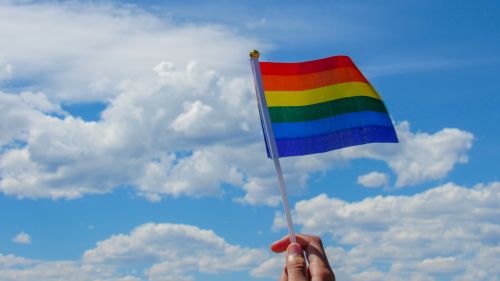South Koreans Becoming More Accepting of LGBTQ Community

Although data shows South Koreans remain uncomfortable with homosexuality, recent trends show an increase in acceptance.
As South Korea has brought the spread of COVID-19 largely under control, it has taken steps to re-open parts of its economy. But a recent outbreak linked to Itaewon, a popular nightlife district particularly for the LGBTQ community, prompted a scramble to contain new clusters of the virus. The South Korean system was largely successful in preventing further infections, quickly tracking and testing 77,000 people. However, the new outbreak shifted the spotlight toward Korean attitudes on the LGBTQ community. The test and trace approach of South Korea has raised fears of being outed in a country where attitudes towards homosexuality remain largely unapproving.
Upon learning that gay bars and clubs were involved in new clusters of coronavirus, Korean media immediately added fuel to the fire. A wave of anti-LGBTQ content online and in newspapers arose as a result. The identities of many were disclosed, adding more fear that people could be outed and increasing the blame being placed on the community.
An interview with Lee Youngwu, who visited the district, is worth quoting at length:
"My credit card company told me that they passed on my payment information in the district to the authorities. I feel so trapped and hunted down. If I get tested, my company will most likely find out I’m gay. I’ll lose my job and face a public humiliation. I feel as if my whole life is about to collapse. I have never felt suicidal before and never thought I would, but I am feeling suicidal now."
Stigma towards the LGBTQ community in South Korea is not new. An issue brief from the Asan Institute indicates anti-discrimination bills proposed in 2007, 2010, and 2013 were discarded and never reached the National Assembly due to opposition from conservative and religious groups. An article from the Journal of Homosexuality cites additional conservative and religious opposition to a 2014 human rights bill due to its promotion and support of homosexuality. Additionally, new sex education standards introduced by the Ministry of Education in 2015 omitted teachings of homosexuality and other identities. Same-sex marriage remains illegal. Furthermore, gay and transgender soldiers can be summarily dismissed from the military.
These standards/restrictions/policies may largely reflect public& deep-seated disapproval of homosexuality in Korea. A survey conducted in 2018 by the Korea Institute Public Administration showed 49 percent were opposed to homosexuality. The survey also found many South Koreans remain uncomfortable with homosexuals as either neighbors (70%), work colleagues (85%), or close friends (95%).
Despite these attitudes, there is still optimism that views can change. An article published in 2017 from the Journal of Homosexuality shows an increasing trend towards acceptance. From 1994 to 2014, positive attitudes on homosexuality have increased from 24 percent to 32 percent. Research conducted by Pew further corroborates an upward trend toward acceptance. In 2013, 61 percent of South Koreans were unaccepting of homosexuality. This was a 21 percent decrease from six years prior (82%).
It is safe& to infer that views have softened across the Korean public. While anti-LGBT sentiment remains prevalent, it is far from the 2010 World Values Survey where 63 percent believed homosexuality is never justifiable and roughly 8 in 10 South Koreans (77%) mentioned that they would not like to have homosexual neighbors. With a limited amount of relatively recent data and surveys available, it will be interesting to see how the numbers change when the next World Values Survey data is released next year.

